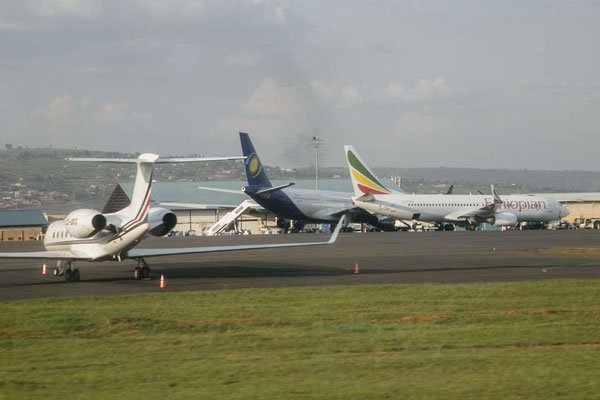With the Expo now getting closer, many commentators are wondering if Dubai will be able to ensure that the event delivers on its previous successes in the midst of pandemic-induced un-certainties
World Expos are platforms for host countries to exhibit their cities and flaunt their culture to a global market while formulating indelible international relations. Following suit, Expo 2020 will be a spectacular happening that will allow Dubai to showcase its brilliance, innovations, break-throughs, and vast potential for a bright future, all to a global audience.
With the expo now getting closer, many commentators are wondering if Dubai will be able to ensure that the event delivers on its previous successes in the midst of pandemic-induced un-certainties.
Ephemeral event with long-lasting impact
Shanghai hosted the highest number of visitors in 2010, welcoming a record-breaking 73 million attendees. Infrastructure, such as subway lines, air terminals, railway stations and the general urban structure, was given a face lift with an expo investment of about $45 billion. Tourism also soared — 13 per cent during the Spring Festival alone, while residential property-leasing vacancy rates fell from 15 to eight per cent during the expo. Demand for hotel rooms shot up 39 per cent from the expo happening in 2010 to 2019, and the average daily rate also increased by 30 per cent.
Riverfront properties, which were stamped as an outdated shipyard pre-expo, caught the eye of foreign investors who redeveloped and converted them into profitable retail and commercial ventures.
When Milan hosted the Expo in 2015, the hospitality industry and commercial services witnessed a hike of 1.3 to 4.2 per cent throughout the year; €6 billion was injected through foreign direct investment within three months.
Similarly, Japan also hosted a successful Expo in 2005 with 22 million visitors, 880,000 of whom were foreigners.
Dubai continues to lead the pack
Dubai has taken major steps and introduced sweeping changes to consolidate its position as the most resilient, future-focused and proactive city on the global map.
Policies in Dubai are formulated to stimulate the economy and make businesses thrive. Sheikh Hamdan bin Mohammed bin Rashid Al Maktoum, Crown Prince of Dubai and Chairman of the Dubai Executive Council, released a Dh1.5 billion economic stimulus package for businesses when the pandemic hit last year. Furthermore, the relief package aimed to reduce the living cost for the residents across properties and industrial arenas when the government rolled out a 10 per cent discount on water and electricity bills.
As part of the emirate’s unremitting pursuance towards supporting the business community, to weather the challenges posed by Covid-19, a Dh50 billion fund was put to play to ensure business continuity and stability.
According to economic reports released by the Central Bank of the UAE, the collective value of all capital and liquidity measures adopted by the authority since the 14th of March 2020 increased to Dh256 billion, including Dh50 billion in capital buffer relief, Dh50 billion in zero-cost funding support, and Dh95 billion in liquidity buffer relief. The central bank also projected a growth of 3.6 per cent for non-oil sectors.
Dubai has been strong in its preparations for Expo 2020 as growth and equilibriums as results of policy changes, technological implementation, and innovation in sustainability and infrastructure were widely noticed. The city anticipates a booming growth in sectors such as construction, tourism and hospitality, as well as looks to attract huge investments in real estate, environmental avenues and public affairs as a result of the expo.
Expo’s impact on Dubai’s economy
According to a statement from the Expo 2020 executive body, the total GDP will stand at Dh24.2 billion, while a report by Ernst & Young suggests Dubai’s economy will push up to about $33.4 billion as the country prepares to host millions of visitors despite the pandemic. Sectors such as events organisation, construction, and hospitality will contribute Dh68.9 billion, Dh27 billion and Dh11.4 billion, respectively.
A total investment of Dh40.1 billion will be put in in terms of infrastructure and capital as-sets. Event and legacy infrastructure will be allocated Dh53.5 billion.
Sustainability and technology have been highly incorporated for the Expo as the new Mohammed Bin Rashid Al Maktoum Solar Park will provide clean energy and facilitate charging stations for electric cars, and canopies will be covered with solar-panels with the ability to capture water from moisture and air around it, revolutionising sustainable energy sourcing.
Dubai, well-known to achieve the unthinkable, has taken up the challenge of making Expo 2020 the most digitally connected Expo in the history of the event. The latest technology and automation, such as AI and 5G, will play a major role in connecting the site via the Internet of Things. Data will be gathered and visualised via Navigator, a cloud-based energy management platform from Siemens.
The Red Line Dubai Metro has also been extended by 15 km from Jebel Ali Station as a convenient means to arriving at the Expo site. Infrastructure is an integral part of the economy as 301 individual projects worth $100 million are in their execution stage. The innovations in sustainability, technology and infrastructure will boost Dubai’s economic growth between 3.8 and 4.5 per cent over a span of five years, estimates suggest.
Dubai’s impeccable efforts
Expo 2020 will be a catalyst to boosting a broad spectrum of sectors in the name of innovation and development. It is not merely the preparations and the happening of the event itself, but especially the after-effects it will have a positive impact on the economy, with Expo 2020 rep-resenting a gateway to the world, putting Dubai on the world stage, facilitating the formation of business relationships, and attracting tourism and population increases in the long term.
Source: Khaleej Times





